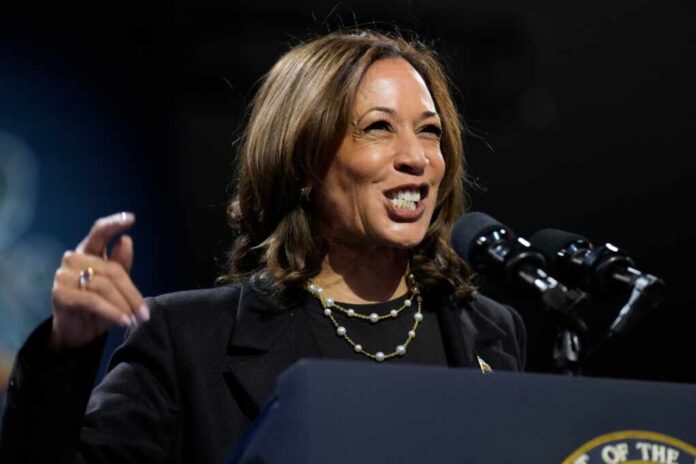
Vice President Kamala Harris is facing renewed scrutiny after accusations surfaced that she plagiarized parts of her 2009 book, Smart on Crime. Conservative journalist Christopher Rufo broke the story, revealing that several passages from the book may have been lifted from other sources without attribution.
Shortly after Rufo’s report, he received an accidental email from Chronicle Books, Harris’ publisher, outlining the company’s internal response to the controversy. The email, intended for staff, instructed employees to avoid responding to any media inquiries about the plagiarism claims and to forward all questions to senior management.
Rufo shared the email publicly, accusing the publisher of being in “damage-control mode.” The media quickly picked up the story, with outlets like the New York Times downplaying the allegations, describing them as conservatives “pouncing” on Harris. A plagiarism expert consulted by the Times said the issue was not serious, calling it an oversight rather than intentional deception.
Conservative commentators, however, are not satisfied with this explanation. Rufo and others have pointed out that while the media acknowledges the copied passages, they are framing the story as a minor issue.
Sen. J.D. Vance (R-OH) joined in the criticism, sarcastically commenting that he wrote his own book, unlike Harris, who allegedly copied parts of hers from online sources. This scandal could pose challenges for Harris as she campaigns for the presidency.

























